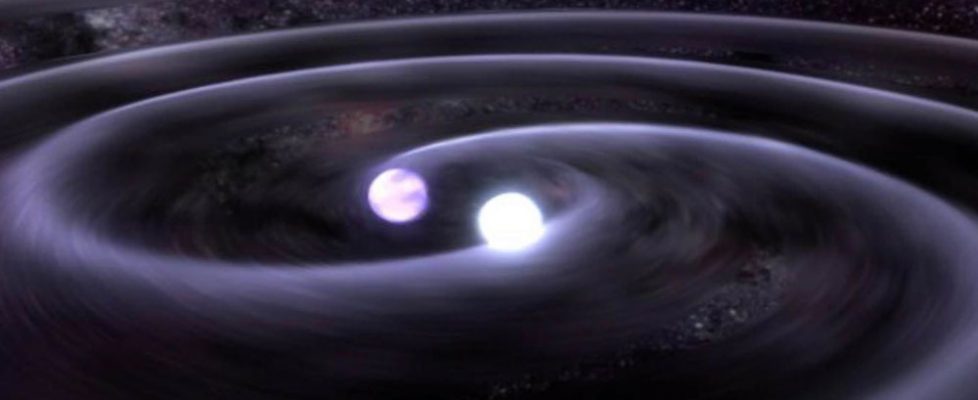Cosmic Gold & Neutron Stars – Jan 7
Scientists have recently developed an entirely new way to “see” the universe: using gravitational waves predicted by Einstein nearly a century ago. These waves can teach us about some of the most exotic objects known, including black holes and neutron stars. Remarkably, they have also helped solve a longstanding puzzle about where in the universe some of the elements we know and love here on Earth are produced, including gold, platinum, uranium, and even californium!

Eliot Quataert
Astronomer Eliot Quataert will describe the remarkable new results coming out of our first steps into the gravitational wave era of cosmic exploration. Dr. Quataert is Professor of Astronomy and Director of the Theoretical Astrophysics Center at UC Berkeley.
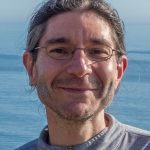
Eliot Quataert
WHAT: COSMIC GOLD: Neutron Star Mergers, Gravitational Waves, & the Origin of the Heavy Elements
WHO: Eliot Quataert, Professor of Astronomy, UC Berkeley
WHERE: Hopmonk Tavern (at Vintage Oaks), 224 Vintage Way, Novato, CA 94945 [http://www.hopmonk.com/novato/]
WHEN: 2018-01-07 — 7:00pm, Sunday, January 7, 2018
HOW: This is event is FREE. But what value does this knowledge have FOR YOU? Please contribute to Wonderfest accordingly, ... and deduct it from your taxes. Help nonprofit Wonderfest to spread the scientific outlook via the "Tickets" box, below.
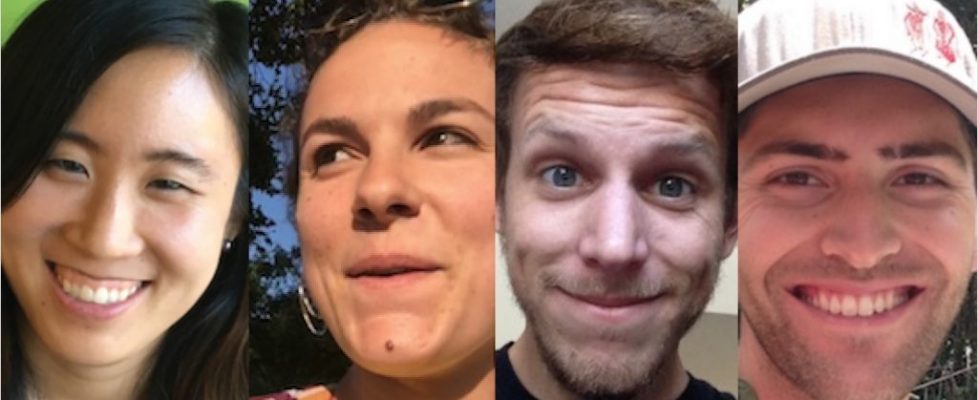
Sky, Ideas, Evolution, & Ecology – Dec 20
Wonderfest Science Envoys are early-career researchers with special communication skills and aspirations. Following short talks on provocative modern science topics, these four Science Envoys will answer your questions with insight and enthusiasm:
- UC Berkeley's Carina Cheng on "Observing the Night Sky" – What kinds of astronomical objects and phenomena can you observe in the night sky, and why is stargazing good for the soul?
- UC Berkeley's Mariel Goddu on "Where Do New Ideas Come From?" – Are the precursors to deviance, innovation, and productive rule-breaking evident in children's cognitive flexibility?
- Stanford's Ryan York on "Evolution Is All Around You" – How does the modern evidence of evolution in action have implications for how we think about evolution and nature itself?
- Stanford's Tyler McFadden on "Plantations, Pinochet, and a Paradigm Shift" — How can we navigate ecology, history, and politics to conserve biodiversity and solve Chile's largest environmental conflict?
WHAT: Ask a Science Envoy: Sky, Ideas, Evolution, & Ecology
WHERE: SoMa StrEat Food Park, 428 - 11th Street, San Francisco, CA 94103 [http://www.somastreatfoodpark.com]
WHEN: 2017-12-20 — 7:00pm, Wednesday, December 20, 2017
HOW: This event is FREE. But what value does this knowledge have FOR YOU? Please contribute to Wonderfest accordingly, ... and deduct it from your taxes. Help nonprofit Wonderfest to enlarge the concept of scientific community — as through this outstanding Science Envoy Program — via the "Tickets" box, below.
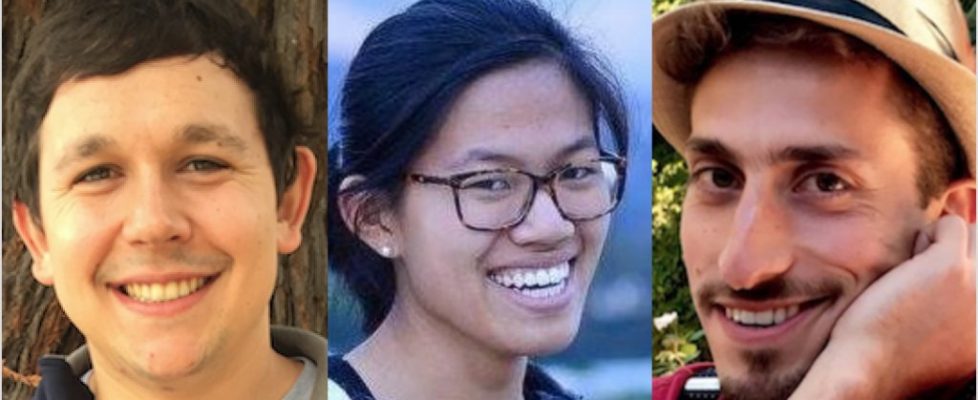
A.I., Plants, & Magnetic Mysteries – Dec13
Wonderfest Science Envoys are early-career researchers with special communication skills and aspirations. Following short talks on provocative modern science topics, these three Science Envoys will answer your questions with insight and enthusiasm:
- UC Berkeley computer scientist Dylan Hadfield-Menell on "What AI Researchers Can Learn from King Midas" – How do we build artificially intelligent systems that reliably do what we intend?
- Stanford botanist Therese LaRue on "The Plant's Ability to Survive" – How are plants so resilient to changes in their environments?
- UC Berkeley physicist Thomas Mittiga on "Magnetic Micro Mysteries" – How do we use artificial atoms to achieve technological breakthroughs and to understand exotic materials?
WHAT: Ask a Science Envoy: A.I., Plants, & Magnetic Mysteries
WHERE: SoMa StrEat Food Park, 428 – 11th Street, San Francisco, CA 94103 [http://www.somastreatfoodpark.com]
WHEN: 2017-12-13 — 7:00pm, Wednesday, December 13, 2017
HOW: This event is FREE. But what value does this knowledge have FOR YOU? Please contribute to Wonderfest accordingly, ... and deduct it from your taxes. Help nonprofit Wonderfest to enlarge the concept of scientific community — as through this outstanding Science Envoy Program — via the "Tickets" box, below.
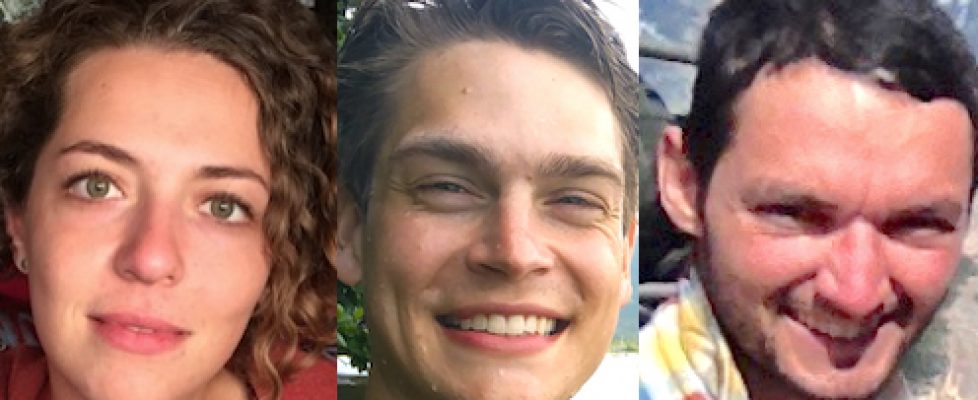
Mind, Dark Matter, & Earthquakes – Dec4
Wonderfest Science Envoys are early-career researchers with special communication skills and aspirations. Following short talks on provocative modern science topics, these three Science Envoys will answer your questions with insight and enthusiasm:
- Stanford's Anna Khazenzon on "Media on the Mind" – How do the ~7.5 hours/day(!) that youth spend with media relate to learning, thinking, and socializing within developing brains?
- UC Berkeley's Eric Copenhaver on "Vera's Veritable Dark Matter" – How was dark matter discovered, and how do we hope to identify this mysterious 80%(!) of the material universe?
- UC Berkeley's William Hawley on "The Earthquake Prediction Predicament" – Why is predicting earthquakes such an imposing (and perhaps impossible!) challenge?
WHAT: Ask a Science Envoy: Mind, Dark Matter, & Earthquakes
WHERE: SoMa StrEat Food Park, 428 – 11th Street, San Francisco, CA 94103 [http://www.somastreatfoodpark.com]
WHEN: 2017-12-04 — 7:00pm, Monday, December 4, 2017
HOW: This event is FREE. But what value does this knowledge have FOR YOU? Please contribute to Wonderfest accordingly, ... and deduct it from your taxes. Help nonprofit Wonderfest to enlarge the concept of scientific community — as through this outstanding Science Envoy Program — via the "Tickets" box, below.
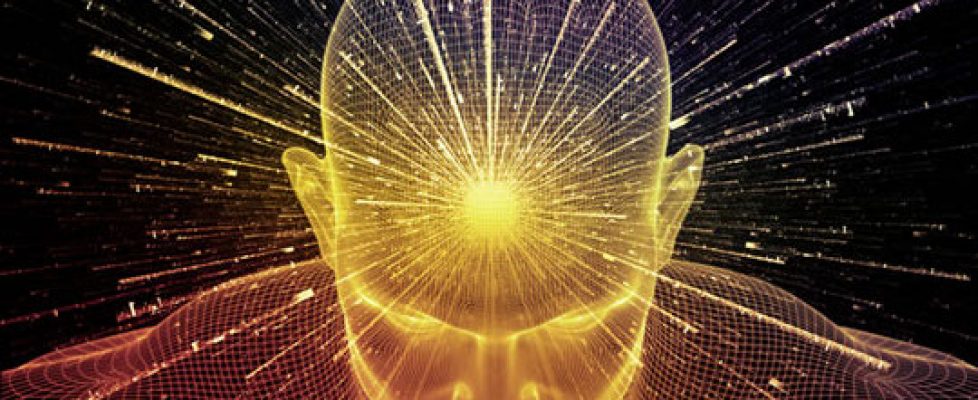
Neural Time Travel – Nov20
Our memory bridges past and present. When coupled with experience, memory also helps us plan for the future. Modern psychology, neuroscience, and AI allow us to understand the mechanisms of memory AND the fallibility of memory. Stanford's Anthony Wagner will show how quantifying “neural time travel” reveals the correspondence between brain states and states of mind.

Dr. Anthony Wagner
Dr. Anthony Wagner is Professor of Psychology and Director of the Stanford Memory Laboratory. He also co-directs the Stanford Center for Cognitive and Neurobiological Imaging.
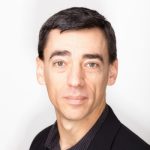
Dr. Anthony Wagner
WHAT: Neural Time Travel: Projecting to the Past & Future
WHO: Dr. Anthony Wagner, Professor of Psychology, Stanford University
WHERE: Box Headquarters, 900 Jefferson Avenue, Redwood City, CA 94063
Map: [https://goo.gl/maps/ZFR7KxmYn8z]
Map: [https://goo.gl/maps/ZFR7KxmYn8z]
WHEN: 2017-11-20 — 7:30pm, Monday, November 20, 2017
HOW: What is this FREE experience worth to you? Please contribute to Wonderfest accordingly, ... and deduct it from your taxes. Help nonprofit Wonderfest to enlarge the concept of scientific community via the "Tickets" box, below.
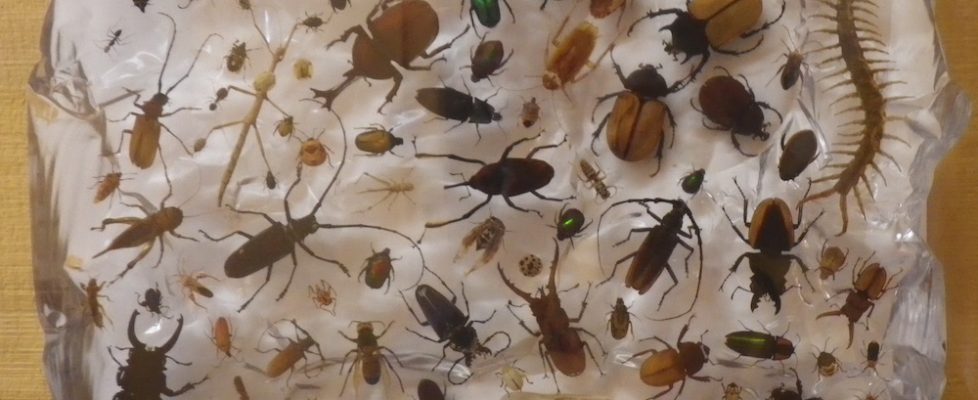
Insects: Good, Bad, & Ugly – Nov14
Experts estimate that some 10 quintillion (10,000,000,000,000,000,000) insects crawl, burrow, swim, and fly on Earth. Roughly 80% of all the world's species are members of the class Insecta! Our speaker, entomologist Vernard Lewis, will present the latest research on the biology, detection, and control of three particularly villainous house guests: ants, termites, and bedbugs.

Dr. Vernard Lewis
Dr. Vernard Lewis is emeritus Cooperative Extension Specialist in UC Berkeley's Department of Environmental Sciences, Policy, and Management. He joined the Cal faculty in 1991, specializing in Urban Entomology, authoring or co-authoring more than 150 publications, and giving hundreds of lectures & presentations. Dr. Lewis was inducted into the Pest Control Hall of Fame in 2016.
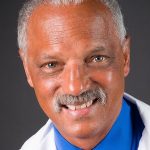
Dr. Vernard Lewis
WHAT: Insects: The Good, The Bad, and The Ugly
WHO: Dr. Vernard Lewis, Emeritus Entomology Specialist, UC Berkeley
WHERE: Osher Marin JCC, 200 N. San Pedro Road, San Rafael [http://www.marinjcc.org]
WHEN: 2017-11-14 — 1:00pm, Tuesday, November 14, 2017
HOW: Co-produced by Wonderfest and the Marin JCC. Please register by calling 415-444-8000. For advance registration, receive a $5 discount on the already-modest $12 fee by proclaiming that you're a "friend of Wonderfest." (This may feel good for many reasons!)

Pleasure vs. Happiness
The Declaration of Independence proclaims our right to "life, liberty, and the pursuit of happiness," but not to the pursuit of pleasure. What is the neurological difference between these two positive emotions of happiness and pleasure? Has society's exploitation of pleasure systematically weakened our grasp on happiness? What has caused the twin epidemics of these emotions' negative extremes: addiction (from too much pleasure) and depression (from too little happiness)?
Our speaker, Dr. Robert Lustig, is professor of pediatric endocrinology at UC San Francisco. His new book, The Hacking of the American Mind, explores the scientific, cultural, historic, economic, and social causes of our modern problem with pleasure.
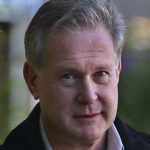
Dr. Robert Lustig
WHAT: Pleasure vs. Happiness: The Neuroscience & Sociology of Two Goods
WHO: Dr. Robert Lustig, Professor, UC San Francisco
WHERE: BookShop West Portal, 80 W. Portal Avenue, San Francisco [http://www.bookshopwestportal.com]
WHEN: 2017-11-02 — 7:00pm, Thursday, November 2, 2017
HOW:
This FREE event is presented in collaboration with BookShop West Portal. Please register with Eventbrite, below; and please consider purchasing Dr. Lustig's new book upon arrival at the BookShop.

The Science of Deception
If not scared for Halloween, would you like to be fooled? Understanding how and why we’re fooled is the beginning of wisdom. Wonderfest, in partnership with St. Helena's Cameo Cinema, presents experts in physics, psychology, and magic to help us avoid getting fooled, again. Our speakers/performers are:
- Dr. Luigi Anzivino, neuroscientist
- Marc "Zeke" Kossover, physicist
- Robert Strong, master magician
WHAT: The Science of Deception + The Illusionist
WHERE: Cameo Cinema, 1340 Main Street, St.Helena, CA 94574 [http://www.cameocinema.com]
WHEN: 2017-10-29 — 2:00pm, Sunday, October 29, 2017
HOW: Purchase advance tickets ($15 adult, $8 student) via the link, below. This collaboration between Wonderfest and the Cameo Cinema is part of the Bay Area Science Festival AND part of the national Science on Screen enterprise.
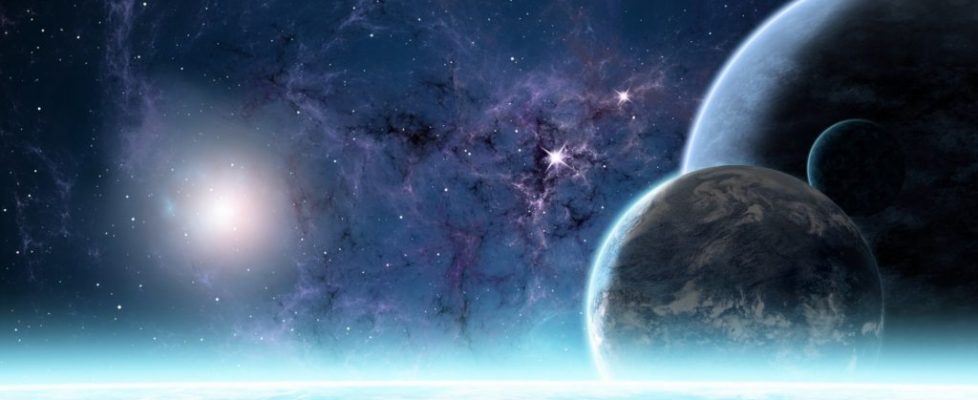
Planets Everywhere, Jun19
Since 2009, the NASA Kepler space telescope has found thousands of planets orbiting other stars, revolutionizing our understanding of planets and our own Earth. Among the planets discovered by Kepler are a few rare jewels: Earth-size planets with Earth-like temperatures. We’ll explore these worlds, how they were found, and how Kepler has sparked the exciting effort to find more Other Earths, and measure their atmospheres to find signs of life.
Our speaker, NASA's Steve Bryson, is a mathematical physicist at Ames Research Center in Mountain View. His work as part of the Kepler Mission Team contributed to the discovery of MANY new worlds orbiting other stars. Dr. Bryson lives in Marin, and he occasionally teaches adult-education classes at the California Academy of Sciences.
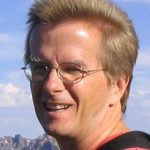
Dr. Steve Bryson
WHAT: Planets Everywhere: Kepler's Legacy and the Search for Other Earths
WHO: Dr. Steve Bryson, Researcher, NASA Ames Research Center
WHERE: Trek Winery, 1026 Machin Avenue, Novato
Map: [https://goo.gl/maps/9EVNHrDWAnr]
Map: [https://goo.gl/maps/9EVNHrDWAnr]
WHEN: 2017-06-19 — 8:00pm, Monday, June 19, 2017
HOW: This FREE Wonderfest event is presented as part of NASA's Kepler Exoplanet Week. Kindly be sure to register, below.

